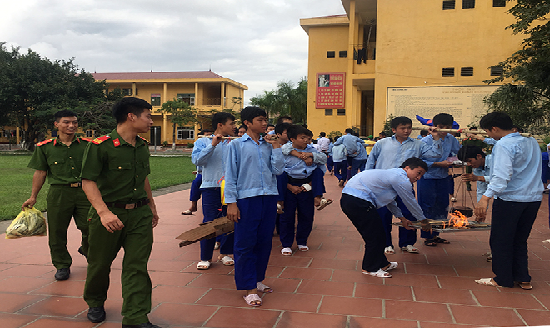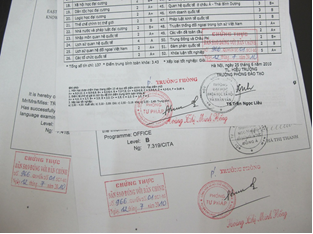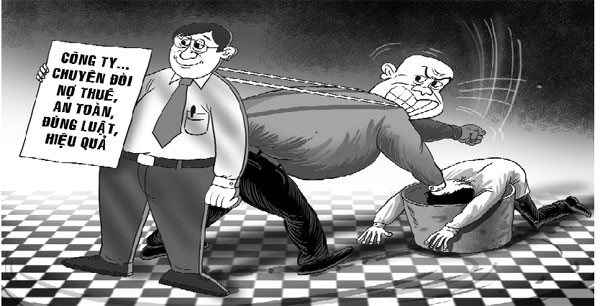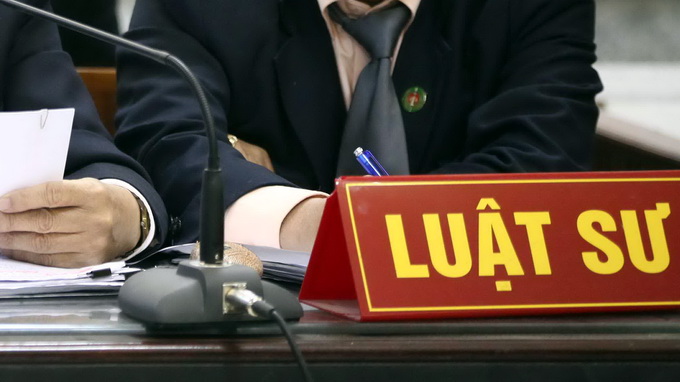What are the regulations on visiting students of reformatories and inmates of compulsory educational establishments in Vietnam? – Ngoc Quy (Binh Duong)

Regulations on visiting students of reformatories and inmates of compulsory educational establishments in Vietnam (Internet image)
The regime of visiting students of reformatories and inmates of compulsory educational establishments is regulated in Circular 41/2022/TT-BCA, specifically as follows:
1. Regime for visiting students of reformatories and inmates at compulsory educational establishments in Vietnam
- Persons allowed to visit students and inmates:
+ Students can meet their relatives according to the provisions of Clause 1, Article 24 of Decree 140/2021/ND-CP.
|
- Students are allowed to visit their relatives at the reformatory's home, each visit lasting no more than 3 hours according to the school's working hours. Overtime cases are decided by the principal of the reformatory. Visiting hours are on all days of the week, holidays, and Tet. In case the student well obeys the reformatory school's rules, actively practices, studies, learns a profession, and works or serves educational work, the principal of the reformatory shall decide to extend the visit time but not to exceed 48 hours; - Reformatory schools issue visitation books according to a uniform form with a list of the student's relatives. The principal of the reformatory signs and stamps the Visiting Book. The visit book must be certified by the commune-level People's Committee or the commune-level Police of the place of residence or the agency or organization where that person works or studies. The visiting relative must be the person whose name is in the Visiting Book and present an ID card, citizen ID card, or Passport. In case a relative visits the student without the above documents, there must be an application with a photo affixed and stamped, certified by the Commune-level People's Committee or Commune-level Police of the place of residence or by the agency or organization where the person works or studies. Relatives who visit and meet students must strictly comply with the provisions of law, the rules of the visiting house, and the instructions of the correctional officer; - When visiting, Vietnamese must be used. In the case of ethnic minorities, there must be officials who know that ethnic language, or those who do not know Vietnamese must use an interpreter to supervise. |
+ Inmates are allowed to meet their relatives as prescribed in Clause 1, Article 39 of Decree 140/2021/ND-CP;
|
- Inmates are allowed to visit their relatives twice a month, each time for no more than 2 hours at the visiting house of the compulsory educational institution, and must strictly comply with the regulations on visits. In case of extended visits, the consent of the director of the compulsory educational institution must be obtained, but not to exceed 04 hours; - If inmates have 3 consecutive months of good or good grades immediately preceding the time of the visit and application, the Director of the compulsory education institution may allow the spouse to see the spouse for up to 24 hours and stay overnight at the visiting house of the compulsory education institution. Spouses who visit and stay overnight must have a marriage certificate or extract or a certificate of marital status from the commune-level People's Committee showing that they are husband or wife; - Visiting times are held every day of the week, holidays, and Tet. The time for camp inmates to visit their relatives depends on the working hours of the compulsory educational institution. In cases of overtime, the Director of the compulsory educational institution will decide; - The visiting relative must be the person whose name is in the Visiting Book and present an ID card or Citizen ID card or Passport. In case relatives come to visit the inmates without the above documents, there must be an application with a photo affixed and stamped, certified by the Commune-level People's Committee or Commune-level Police of the place of residence or by the agency or organization where the person works or studies. Educational establishments are required to issue Visiting Books according to a uniform form with a list of camp inmates' relatives. The director of the educational institution is required to sign and stamp the Visiting Book. The visit book must be confirmed by the Commune People's Committee or the Commune Police of the place of residence. Relatives who visit inmates must strictly comply with the law, the rules of the visiting house, and the instructions of the staff of the compulsory education facility; - For other agencies, organizations, and individuals to visit and meet inmates as decided by the Director of the compulsory education facility, there must be: A written request from an agency or organization or an individual's request with confirmation from the People's Committee of the place of residence or the agency or organization where they work, clearly stating the reason; When visiting, you must present your ID card or Citizen ID card or Passport; - When visiting, Vietnamese must be used. In the case of ethnic minorities, there must be officials who know that ethnic language, or those who do not know Vietnamese must use an interpreter to supervise; - inmates who violate the rules of compulsory education facilities are being isolated in the disciplinary room; inmates who are in the process of investigation, prosecution, trial, or are involved in other criminal cases being considered and handled are not allowed to visit their relatives. |
+ Relatives visiting students and inmates include: spouse; grandfather, grandmother, maternal grandfather, maternal grandmother; paternal grandfather, paternal grandmother of the spouse, maternal grandfather, maternal grandmother of the spouse; parents, step-parents, and legal adoptive parents; biological parents, step-parents, and legal adoptive father of the spouse; biological children, daughters-in-law, sons-in-law, and legally adopted children; siblings; siblings of the spouse; aunts, uncles, nieces, and nephews.
- People who visit and meet students and inmates must comply with the provisions of law, reformatory school rules, compulsory education facility rules, and visiting house rules; follow the instructions of officials of reformatories and compulsory education establishments.
- Procedure for visiting students and inmates:
+ Officials receive and check the documents of visitors according to regulations;
+ In the visit monitoring book, report to the principal of the reformatory and the Director of the compulsory educational facility for approval and signature before settling the visit;
+ Managing and supervising students and inmates during the time of organizing visits and signing the Student and inmate Entry and Exit Book; Control money and gifts sent by relatives to students and inmates; Control objects and personal belongings when visiting inmates in private rooms. Objects and personal belongings that are not allowed to be brought into private rooms must be declared, signed for confirmation, and deposited in the cabinet of the visiting room;
+ Updating information in the visit tracking book and send deposit money to students and inmates (if any).
2. Visiting house for students of reformatories and inmates of compulsory education establishments in Vietnam
- Each reformatory school or each reformatory school branch (if there is a branch) must have a House to visit students;
Each compulsory educational institution or each subdivision of a compulsory educational institution (if there is a subdivision), there must be an inmate visiting house built according to the design of the Ministry of Public Security, located in a convenient place for visiting and managing visits.
The visiting house must be equipped with the necessary tools and equipment for the visit.
- The visiting house of the reformatory must display the sign "Visiting house for students"; There is a suggestion box for relatives of students and inmates to reflect on and contribute ideas.
The visiting house of the educational institution is required to display the sign "Visiting house for camp inmates" and have a suggestion box for relatives of students and inmates to reflect on and contribute ideas.
Diem My
 Article table of contents
Article table of contents










.Medium.png)
.Medium.png)
.Medium.png)
.Medium.png)
